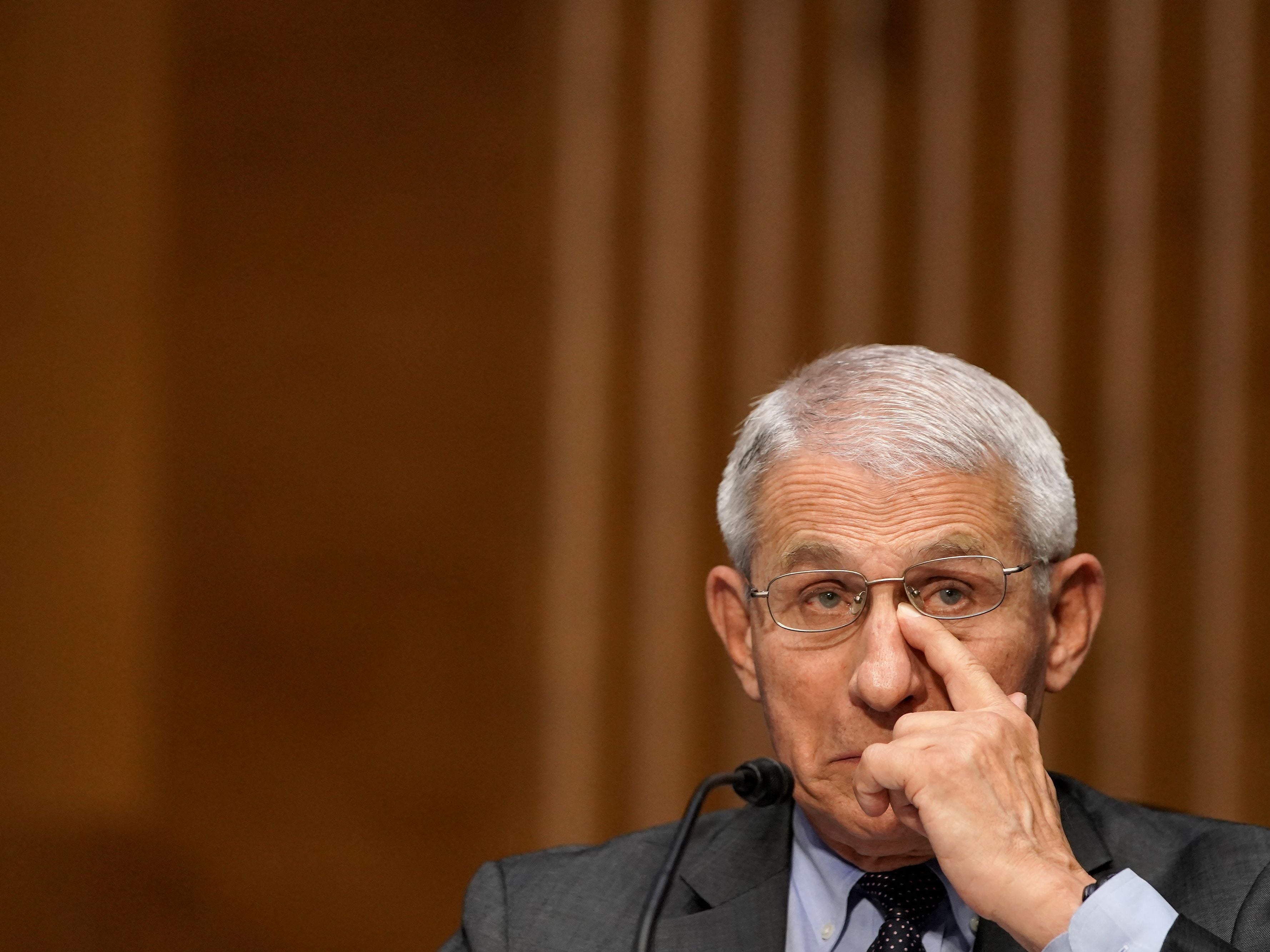Fauci’s emails show an obsessive culture taking its toll on a bewildered man
‘It will blow your mind,’ Fauci wrote, of ‘Fauci Fever’ during the pandemic. ‘Our society is really totally nuts’


On Monday, The Washington Post compiled their findings culled from 866 pages of Anthony Fauci’s emails, which the publication obtained as part of a Freedom of Information Act request.
Through these emails (nearly 1,000 per day) we see that Fauci, the Director of the US National Institute of Allergy and Infectious Diseases (NIAID) and the Director of the former President Donald Trump’s White House Task Force, spent March and April 2020, the zenith of the pandemic — or rather, the zenith of panic about the pandemic in the US — frantically trying to both bring order to an extremely dysfunctional government response. He also struggled to handle a bizarre rise in personal fame.
Fauci forwarded an April 2020 story titled “‘Cuomo Crush’ and ‘Fauci Fever’ — Sexualization of These Men Is a Real Thing on the Internet” to someone whose identity was redacted, telling them to click on the link. “It will blow your mind,” Fauci wrote. “Our society is really totally nuts.” And he was not the only one disconcerted. A colleague at the National Institutes of Health sent Fauci a March 31 article from The Washington Post that discussed the “cult following” that had rapidly formed around the medical professional, resplendent with merchandise like socks, doughnuts, fan art, and, perhaps most startling, prayer candles. Is there any better imagery to symbolize the desperate need people had to be supplicant to a competent leader at that time?
The emails show that our society — particularly American society, although the obsession with Fauci was somewhat global, with countless international media outlets requesting interviews — has a disturbing urge to create celebrities, sex symbols, and saviors during times of crisis. This obsession with Fauci overlaps with the aforementioned sexualization and lionization of New York Governor Andrew Cuomo and his middling handling of the coronavirus epidemic, and it can also be linked to the same phenomenon that surrounded former New York City Mayor Ruidy Giuliani after 9/11 in 2001.
A public preoccupation with governmental figures that, while important, are not the main authority in the US is indicative of a gaping power vacuum and a low level of confidence in the executive, the president, who is supposed to be at the helm during a crisis. Consider the absolute chaos of the Trump administration, and the low levels of respect that former President George W Bush commanded, which only declined throughout his handling of several crises, like 9/11, Hurricane Katrina, and the Great Recession.
Without competent and compassionate leadership, Fauci almost effectively became the Head of State as well as a celebrity. He was certainly a source of comfort and authority for those who trusted him. Even amongst Trump supporters — who were, for the most part, hostile toward Fauci — we saw behaviors and attitudes which seemed to imply belief in him as an overarching leader who needed to be deposed, rather than a minor figure in a larger administration peopled with more significant characters.
When Fauci received countless threats and malicious attacks from Trump supporters, George Gao, director of the Chinese Center for Disease Control and Prevention, emailed him on April 8, 2020. The email read: “I saw some news (hope it is fake) that [you] are being attacked by some people. Hope you are well under such a [sic] irrational situation.”
“Thank you for your kind note,” Fauci replied three days later, having been assigned a full-time security detail for protection. “All is well despite some crazy people in this world.”
On April 26, Freddie Barnes, a military veteran and chaplain with North Carolina’s Department of Public Safety, wrote Fauci to express appreciation — and to warn him. “Take care and ‘Cover your six’,” Barnes said, military slang for “watch your back,” according to The Washington Post.
Fauci’s emails show that he was bombarded — to reiterate, this was during the peak of the crisis — with a variety of speaking requests, podcast appearance requests and interview requests from newspapers and TV channels. A documentary filmmaker asked to ride along with him during work for a Disney-backed biopic that will be released later this year. The NFL requested a “joint NFLPA-NFL Task Force” with the goal of trying to continue games during the crisis (an appalling move, considering the numbers of deaths and cases at the time). Fauci’s response to that specific request was redacted, although he did say in an interview with NBC’s Peter King that it was “impossible to know whether the NFL season could be salvaged.”
Ultimately, Fauci’s emails tell the story of a culture starved of leadership and obsessed with celebrity. It tells the story of a culture that prioritizes entertainment over safety and anecdotal evidence over facts. Even the fact that they were requested says a lot. Was it necessary for the public to see these emails for the sake of transparency and accountability, or was the request merely an extension of the “stan” culture that now surrounds government officials?
One dominating theme of the emails is that Fauci himself remained bewildered and confused about his newfound status. To one colleague who had sent him a link to a story detailing his new obsessive fan-base, Fauci replied, “Truly surrealistic. Hopefully, this all stops soon.”
Following the removal of Trump and the installation of President Joe Biden, obsession with Fauci has faded. More and more people are vaccinated, and more people perceive that they finally have a competent leader. But the culture that created that short-lived Fauci-loving phenomenon shows no signs of disappearing. It’s only intensifying, and we must question whether it will lead us further towards rudderless governments and dismissive responses to crises.
Join our commenting forum
Join thought-provoking conversations, follow other Independent readers and see their replies
Comments
Bookmark popover
Removed from bookmarks